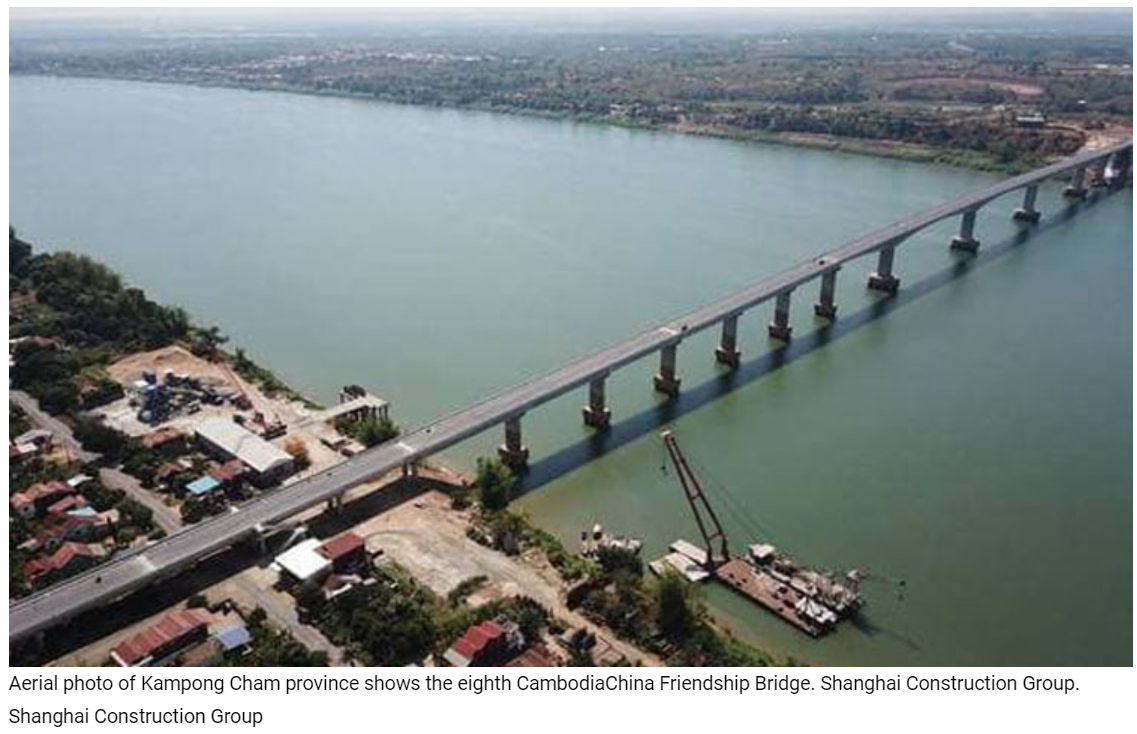Cambodia expects China, RCEP to help boost economic recovery
Amid the raging COVID-19 pandemic, Cambodia’s economy in 2020 registered its slowest growth since 1994. However, the country’s growth is projected to rebound this year, thanks to its newly-signed bilateral free trade agreement with China and the Regional Comprehensive Economic Partnership (RCEP).
A government report showed that the Southeast Asian nation’s economy shrank 1.9 percent last year, to $27.6 billion.
Despite the pandemic, Cambodia’s total trade volume reached $35.8 billion in 2020, up 2.5 percent from a year earlier. Its GDP growth in 2021 is forecast to rebound 3.5 percent, said the government report.
Cambodia has been fighting a third wave of COVID-19 community transmission since Feb 20.
To mitigate the socio-economic impacts caused by COVID-19, the government has released an $800 million stimulus package for 2021, according to Economy and Finance Ministry spokesman Meas Soksensan.
“Global pandemic and global supply chain disruption have been causing difficulties for Cambodia’s economic development,” he told China state Xinhua news media recently.
Mey Kalyan, senior adviser to the Supreme National Economic Council, said the limited production capacity of not-so-high value-added products, combined with the limited saving capacity of the majority of the population as well as the dependency on situations in foreign countries have made Cambodia’s economy vulnerable to negative shocks such as COVID-19.
“If COVID-19 continues further, the negative impact will worsen even more,” he told Xinhua. “The impact is more acute on the poor layers of the society.”
Chheang Vannarith, president of the Phnom Penh-based Asian Vision Institute, said promoting a sustainable, inclusive, and resilient economic recovery is the most challenging journey for Cambodia.
“It requires strong political will and material resources to build social infrastructure, enhance social protection and justice, and improve public service delivery,” he said. “Corruption remains the key issue that needs to be urgently addressed at all levels otherwise it is hard to attract foreign direct investment.”
Cambodia’s Agriculture Minister Veng Sakhon on Tuesday expressed his profound gratitude to China for formally approving the export of Cambodian fresh mangoes to China.
“This is a new achievement that was born from excellent cooperation between Cambodia and China,” he said.
Seang Thay, spokesman for Cambodia’s Ministry of Commerce, said the Cambodia-China Free Trade Agreement (FTA), signed on Oct. 12, 2020, would provide larger market access to Cambodian products.
“We’re confident that through our close relations and good cooperation, China will continue supporting Cambodia in rebuilding its economy during and after the COVID-19 crisis,” he said.
“When the Cambodia-China FTA enters into force, I hope that Cambodian products, especially agricultural ones and other potential products, will be exported more to China,” he said.
Kalyan, who is also chairman of the Cambodia Development Resource Institute, said it’s lucky that the Chinese economy is now largely free of the negative impact of the COVID-19 pandemic and thus “has good capacity” to boost regional economies, including that of Cambodia.
“What we expect from China is the Push-and-Pull Policy. For example, China will continue to be the market for our export goods and, at the same time, add more investment to increase local production capacity in Cambodia, so it can recover gradually over time,” he said.
Vannarith said Cambodia and China must work together to strengthen both hard and soft infrastructure in Cambodia.
“Skills development, institutional capacity building and digital infrastructure development are the key policy intervention to enhance the resilience of Cambodian society and economy,” he said.
Initiated by the Association of Southeast Asian Nations (ASEAN) in 2012, RCEP is a mega free-trade deal between its 10 member states and five FTA partners, namely China, Japan, South Korea, Australia and New Zealand.
The 15 Asia-Pacific countries signed the pact on Nov 15, 2020, forging the world’s largest free trade agreement. Ratifications of six ASEAN member countries and three non-ASEAN member countries are needed to reach the threshold of entry into force.
Thay said Cambodia has been expediting internal procedures towards the ratification of the agreement as soon as possible.
“Currently, Cambodia has finished the translation of the agreement from English to Khmer and will soon submit it to the Council of Ministers for a check before requesting ratification from the National Assembly and the Senate,” he said.
Source: https://www.khmertimeskh.com/50847787/cambodia-expects-china-rcep-to-help-boost-economic-recovery/


 English
English




